Sand Dredging Operations Of “Unprecedented Scale,” Cambodia
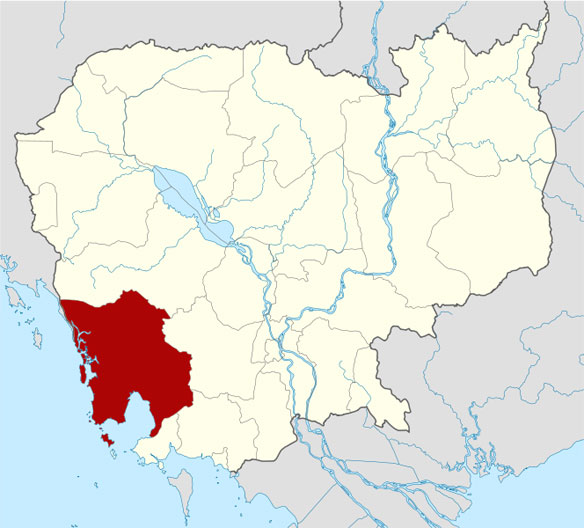
Sand dredgers have resumed operations of “unprecedented scale” in Koh Kong province’s salt-water estuaries since May, after a drop-off in dredging activities as a result of a 2009 sand-export ban.
CAMBODIA: Sand dredging prompts fishermen’s protests
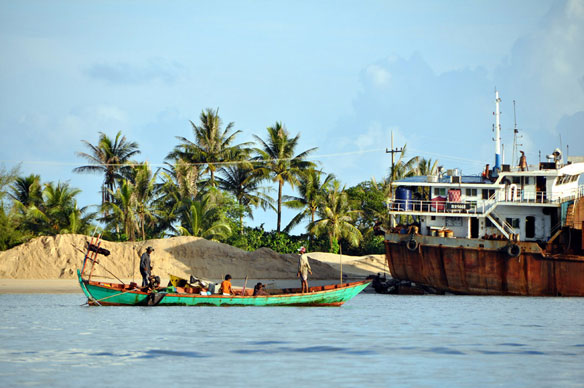
Prime Minister Hun Sen banned sand exports in May 2009, yet sand mining continues in Koh Kong Province, the epicentre of the country’s corrupt dredging industry. Dredgers remove 25,000 tons of sand each day from the Cambodian seas to export.
Singapore sand imports threaten Cambodian ecosystem
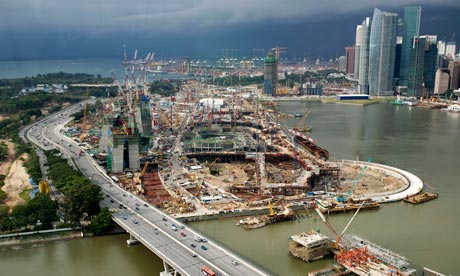
Singapore, which prides itself on being one of the most environmentally friendly nations in Asia, is expanding its coastline with irresponsibly dredged sand from Cambodia, according to a report from an environmental NGO.
Cambodia Under Sandmen’s Spell
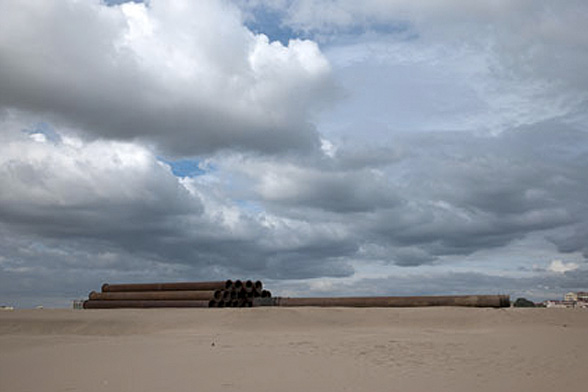
Singapore is struggling to find the sand it needs for its gigantic land reclamation and construction projects.
In Vietnam, the mighty Mekong’s banks are crumbling as illegal sand miners run riot – South China Morning Post
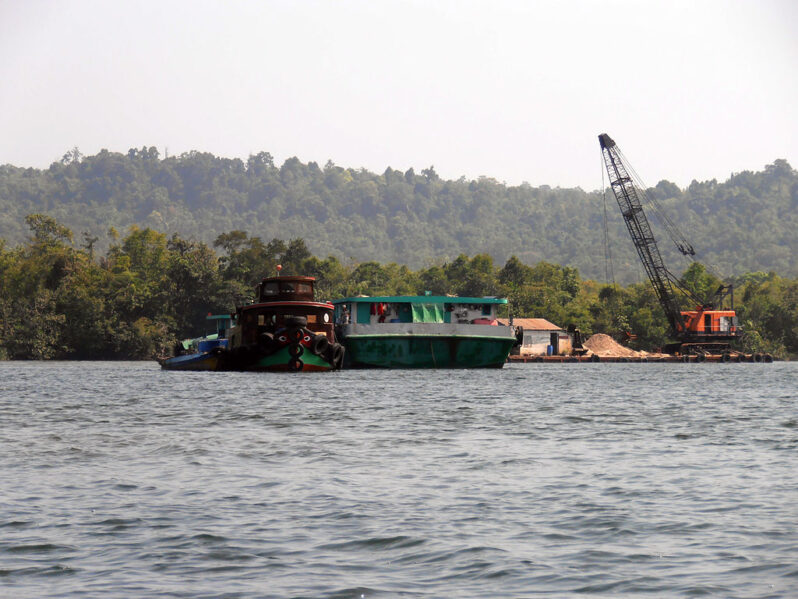
When the retaining wall of Vietnamese fish farmer Ho Thi Bich Tuyen’s catfish pond collapsed into the Hau River several years ago, she knew who was to blame: illegal sand miners.
“They took the sand, and the riverbed just kept going lower and lower,” she said. “There were so many of them. The sand miners came close to the riverbank. So I told the local ward officials to shoo them away, but at night they came back again…”
Women against the grain – Beneath the Sands ERC
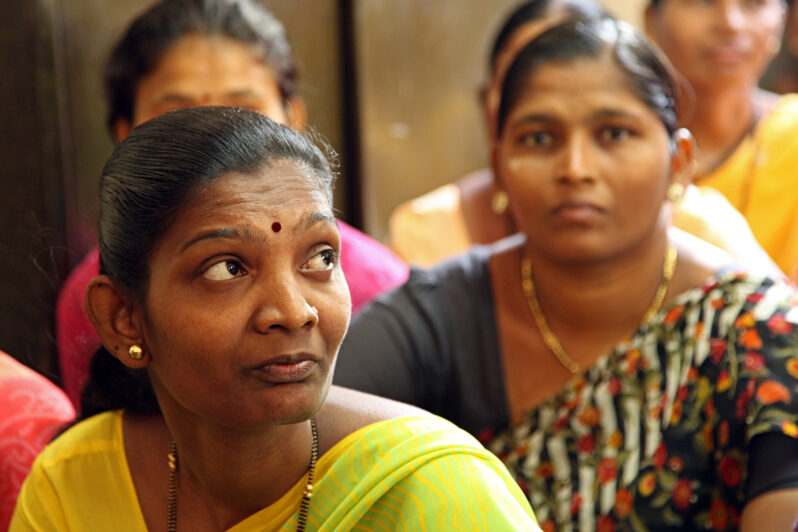
Women in Cambodia, India, Kenya and Indonesia share how they are on the frontlines in the resistance against powerful sand mining operations in their communities.
In a trade that is dominated and driven by men, women often bear the burden of the negative social and environmental impacts from sand mining activities across the world. This is evident in much of our reporting on the global industry. As is common with many environmental issues we face today, we feel that the disproportionate burden to women is a heavily underreported issue…
Beneath the Sands Series – the Environmental Reporting Collective
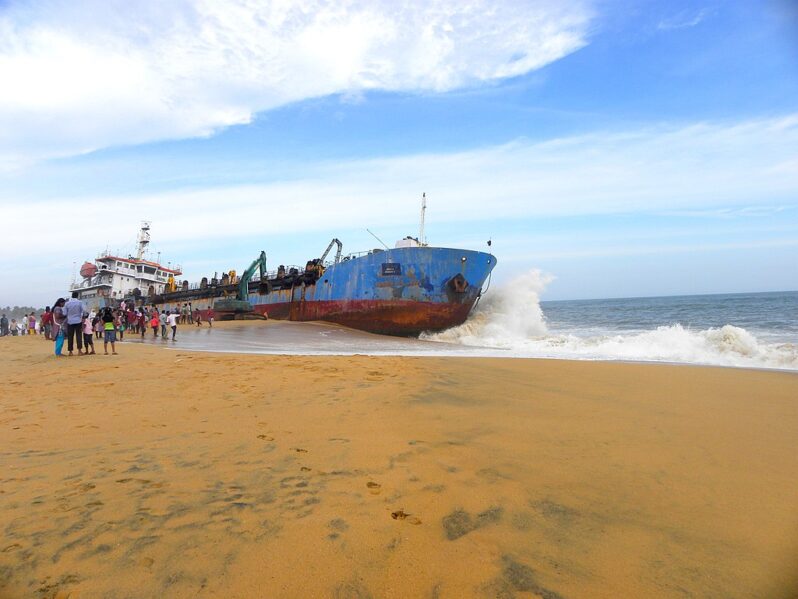
The greed for grains of sand comes at an ecological disaster and fatal human cost; murders and other associated crimes which have taken a toll on poverty-stricken communities, particularly women.
The ERC investigation, Beneath the Sands, exposes how greed for grains of sand comes at a fatal human cost: As cities rise in number and countries urbanize rapidly, sand mining-related murders and other associated crimes have taken a toll on poverty-stricken communities…
A Thirst for Sand – Mekong Eye
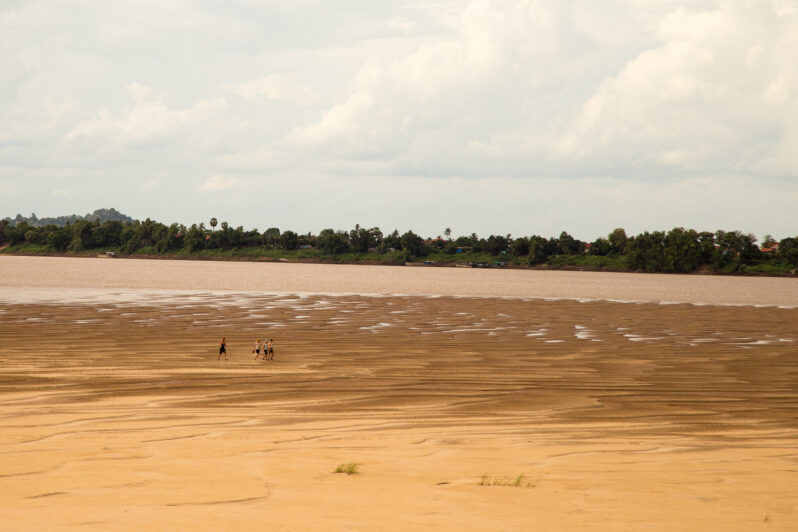
The rising demand for sand to resume post-pandemic growth drives unregulated and illegal sand mining in the Mekong River, where people living along its banks have lost their houses and fortunes to severe erosion.
One October morning in Vietnam’s Dong Thap province, 72-year-old Nguyen Thi Cam sat on the banks of the Mekong River, staring at dredgers hoovering up sand in the distance.
“My house was over there before,” she said, pointing to a raft floating about 50 meters from the riverbank…
North Korea might be making millions — and breaking sanctions — selling sand. Yes, sand.
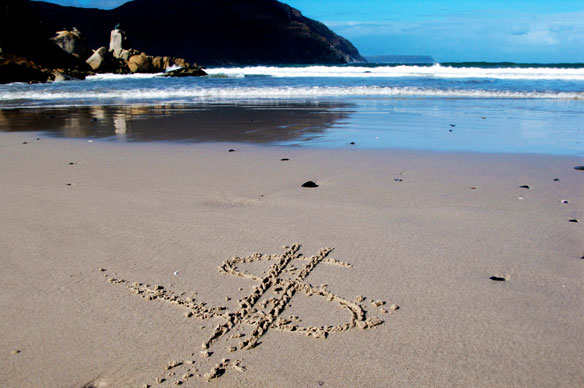
North Korea is barred from exporting earth and stone under United Nations sanctions passed in December 2017. Trading North Korean sand is a violation of international law. Despite those measures, North Korea raked in at least $22 million last year using “a substantial sand-export operation,” UN investigators said in a report released in April.
